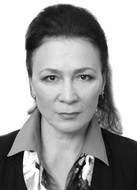Psychomotor and speed qualities and mindsets cultivation in junior judokas for competitive progress
Фотографии:
ˑ:
PhD, Associate Professor G.A. Kuzmenko1
Master student K.A. Kabanova1
T.N. Lugovskikh2
1Moscow State Pedagogical University (MSPU), Moscow,
2Sambo-70 sports and education complex MCDPCS, Moscow
Objective of the study was to rate benefits of the junior judokas’ psychomotor and speed qualities and mindsets cultivation model for their competitive progress. Applied for the study purposes were the educational process monitoring, interviews, tests and comparative analyses to find the demand for and benefits of the model designed to build up the complex motor response rates; choice response rate; fast thinking abilities and competitive agility; competitive tactics customizing ability; cultivate due receptive response strategy; counterattacking tactics; versatility of situation-specific responses; creative thinking; offense and defense skills and tempo; tolerance to external pressures/ distractors; and tactics imposing skills in different weight classes of junior judo. The study analyzes the most efficient coaching models to develop the above qualities and skills; and rates weight factors of the complex motor response elements and competitive tactics management abilities critical for competitive progress and success. A cluster analysis under the study made it possible to rate the contributions of the high-speed elements and competitive bout control versatility factors, with the following correlated factors: double correlation of weight categories versus numbers of competitions; and triple correlation of competitive tactics management skills, technical versatility rate and counterattacking tactics demonstration skills.
Keywords: junior judokas, weight classes, factors of competitive progress, psychomotor abilities, speed characteristics of thinking, training, educational approaches.
References
- Apoyko R.N., Tarakanov B.I. Vzaimosvyaz sportivno-tekhnicheskikh pokazateley i vesovyih kategoriy sportsmenov v sovremennoy volnoy borbe [Correlation of sports and technical indicators and weight categories of athletes in modern freestyle wrestling]. Uchenye zapiski un-ta im. P. F. Lesgafta, 2014, no. 6 (112), pp. 17–23.
- Kim T.K., Podlesnykh A.A. Otsenka effektivnosti metodiki profilaktiki i korrektsii strukturno-funktsionalnykh izmeneniy oporno-dvigatelnogo apparata dzyudoistov na osnove ucheta ikh motornogo profilya [Rating benefits of musculoskeletal system disorders prevention and correction method based on motor profiles in judo]. Teoriya i praktika fiz. kultury, 2018, no. 1, pp. 102–104.
- Krikukha Yu.Yu., Gorskaya I.Yu. Analiz pokazateley psikhomotornykh sposobnostey kvalifitsirovannykh bortsov s uchetom vesovykh kategoriy [Analysis of indicators of psychomotor abilities in skilled wrestlers versus weight categories]. Sovremennye problemy nauki i obrazovaniya, 2015, no. 2–2, P. 342.
- Kuzmenko G.A. Strukturny analiz intellektualnykh trudnostey sorevnovatelnoy deyatelnosti yunykh sportsmenov [Structural analysis of intellectual difficulties in junior athletes' competitive activity]. Teoriya i praktika fiz. kultury, 2017, no. 2, pp. 100–102.
- Lubysheva L.I., Zagrevskaya A.I. Integratsiya fizicheskogo i psikhicheskogo razvitiya cheloveka na osnove kineziologicheskogo podkhoda v protsesse resheniya dvigatelnykh zadach [Integration of physical and mental development in man based on kinesiological approach in motor task solving process]. Materialy VI Vseros. nauch.-prakt. konf. s mezhdunar. uchastiem 'Perspektivnye napravleniya v oblasti fizicheskoy kultury, sporta i turizma' [Proc. VI nat. res.-pract. conf. with intern. participation 'Perspective directions in physical education, sports and tourism']. Nizhnevartovsk: NSU publ., 2016, pp. 283–286.




 Журнал "THEORY AND PRACTICE
Журнал "THEORY AND PRACTICE